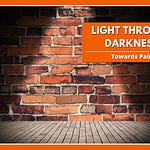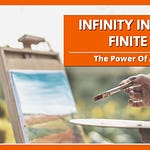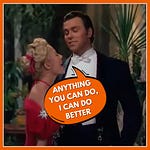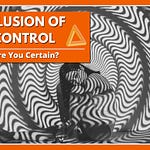The Worst Person To Run From Is Yourself🚶♂️🚶♂️
Identity is a complex psychological and social construct.
For millennia, it has defined our status and standing within societies.
Your position and power were primarily formed by your title and your relative standing within your community.
But there is another side to our identity that is not so formal.
Part of who we are, and who we become, is our perception of ourselves.
We create a character within our environment based on our actions and reactions.
Our observations let us form opinions about our behaviours, that shape our inner identity.
How can we develop a belief in ourselves and trust our ability to deliver and operate, based on prior experience?
Counter Surveillance 🔍
Human nature propels us to find patterns as a tool to communicate effectively.
We characterise people based on appearance, behaviour, and actions.
This allows us to quickly build an identity profile to speculate on other people's possible intentions and beliefs.
We judge people whether we want to admit it or not. It is a helpful shortcut to avoid having to cognitively process every single detail of interactions and relationships.
If only we had time to judge a book by its contents.
We use our previous experiences (pretext) and current environment (context) to understand the subtleties of life.
When engaging in conversation our pretext will shape our perception and understanding. The context will allow us to share large amounts of information with minimal effort based on a shared experience.
Computer and voice recognition have difficulty interpreting the subtleties of interaction because of the amount of information contained in the pretext and context that we humans effortlessly interpret.
When interacting with us, others often judge us too based on their past experiences. Even stranger, sometimes the opinions of those people shape our identity over time from external validation.
For example, if a doctor tells you something about yourself, you will usually believe them as an authority figure, and you might even take their comments and use them to form part of your own identity.
Think about it, most of us want to hear the doctor tell us what is wrong with us. It’s not good when they say they don’t know. We want something conclusive. When they do diagnose us, then we can justify our initial concern and take on this diagnosis as a part of our identity.
There is an inherent danger when crafting your identity and letting others shape who you become because it is easy to be misled by your own mind.
On to me, I’m on to You, It’s No Mystery 🧐
What is fascinating is that we conduct a similar process of judgement of ourselves.
We observe our behaviours and actions in the same way that we do with complete strangers.
Then we use our interpretations of how we conduct ourselves in the world to solidify our identity to reinforce our beliefs.
Your perceived identity is something that can work for you or against you, depending on if it has an encouraging healthy effect or a negative spiral.
Each experience we have, adds to, or subtracts from our confidence, which can affect the way we behave in the future and interpret our past.
As a result, it is impossible to "get away" with anything.
We are solely responsible for the inner identity we cultivate.
You cannot hide from yourself.
You will be judged by your personal moral code with every action and decision, even when you don’t have full control of your mind.
The spectrum of self-judgement ranges from pity to hubris and often changes.
The Only Person I Stand in the Shadow of is Evidence
Everything you do will affect you.
You might think this is crazy because how could you judge yourself if you anticipate your own behaviours?
The fact is we don’t always have absolute sovereignty over what we think, or do.
I challenge you to think back to a morning when you woke up with grand ambitions. You had a party to go to, and you decided that you would not stay late and drink.
Suddenly, you wake up again, and it's the next day. You have very little recollection, and you promise yourself that you will never drink again.
If you are not a drinker, you can apply this same principle to food or any other vice you have had.
From morning to night, our thoughts and actions often conflict.
We don't always listen to the rational thoughts in our minds.
When our thoughts, actions and identity become mismatched, there is almost always a negative effect.
We have the choice of whether to act on our thoughts.
Choosing consciously when to listen or ignore your thoughts that influence your actions, is an impressive skill that can only be achieved with practice and time.
You can learn to disregard your tugging mind when it is not in your best interest and instead watch your thoughts like an outside observer.
For example, if you really are craving some naughty food, you don't have to succumb to the urges of your mind, and instead, you can choose to ignore your thoughts and opt for a healthier alternative.
This simple act creates a positive identity reinforcement.
If eating healthy becomes part of your identity, because you opt for healthier foods, it forms a much stronger habit than going on infrequent diets.
When your identity is linked to your behaviour, it is more likely you will be consistent.
Forgive Yourself
Having the ability to act in opposition to our thoughts is how we are able to craft and design our identity.
Especially if it leads to a moment where you feel proud and acknowledge yourself for positive achievements that are aligned with the person you are becoming.
When you challenge yourself and succeed you can start to build a new foundation for your identity in small increments.
It becomes easier to build your confidence if your actions follow your moral compass.
When we interact with the world with a justified level of confidence, the world responds in unimaginable ways.
When we act against our constructed identity, we feel guilt as we defy our persona.
It is much easier for most of us to latch onto guilt and become heavily affected by the “negative comments” of our self-identification.
If you are feeling lost, work to encourage yourself when you get a small win.
It is rare that we take time to congratulate ourselves, so make it a habit to give yourself a pat on the back every so often.
Become a person who acknowledges achievements regularly.
There will be times when you slip up, you are only human.
It is important to extend forgiveness to yourself and to others. We are all on a similar journey of becoming our best version of ourselves and along the way, we all fall victim to some tough times, both physically and mentally.
Better Think Fast Though, The Futures Just Your History
Our identity is shaped based on what we do rather than what we think.
This is why there is power in doing things that might make you uncomfortable.
Becoming a better, more productive person has a positive snowball effect when you create a habit of limiting your impulses and doing challenging tasks.
When you do something challenging, which could be a simple thing like going to the gym when you don't feel like it, you reinforce your control over your thoughts and help shape your identity.
Suddenly, you become the person who goes to the gym even when they don't feel like it, and the deed does not go unnoticed as it becomes part of your identity over time.
You can build confidence knowing that you challenged yourself, and this reinforces the belief that you are someone who can do hard things.
When you include difficult, yet rewarding tasks into your life, the watcher within, crafts a confident identity that helps to make your good habits stick.
Remember To Always Be True, No Matter What You Do.
We can decide to develop healthy or unhealthy self-criticism.
The word self-conscious has a negative connotation, but the reality is that we inevitably observe our behaviours and then judge ourselves accordingly.
If you can recognise your behavioural patterns, then you can change them.
Depending on your actions, you can shape your inner identity.
At times, you may be overcome by your thoughts and cravings but we are certainly not perfect, so at times we will have to forgive yourself.
As we become conquerers of our minds, we create a positive reinforcement cycle that can give us a healthy boost of confidence in the face of our challenges.
You consistently observe yourselves as the hero of your stories when you do hard work and practice self-sovereignty.
You can become the person you wish to be.
It is difficult to go against our minds at times when we are out of sync with our moral compass, but the more you condition yourself to do hard work and make a positive impact, the stronger your capacity to achieve and feel fulfilled increases.
When we push ourselves to do things that we believe are positive, even when they are uncomfortable, we start to change the perception of our identity.
When we change our perception of our internal identity, we unlock the massive potential to help ourselves and others.
Similar Articles
Inspired by Dilated Peoples















You Can't Hide, You Can't Run